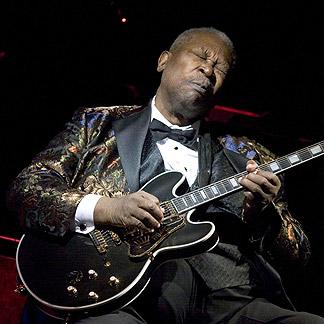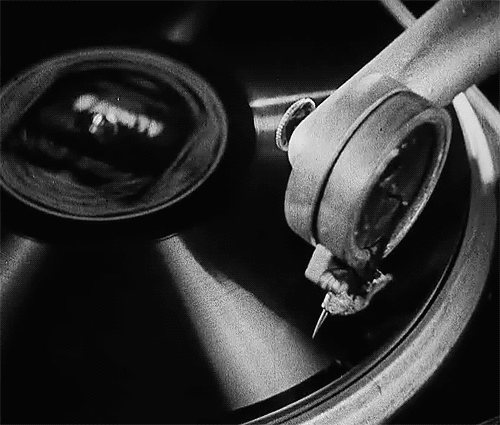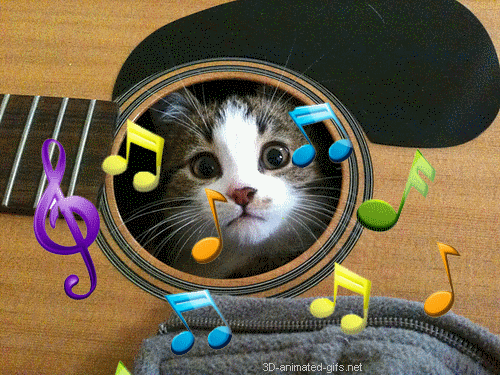


B.B. KING LYRICS
"There Must Be A Better World
Somewhere"
Sometimes I wonder
Just what am I fighting for?
I win some battles
But I always lose the war
I keep right on stumblin'
In this no-man's land out here
But I know
Mmmmm yes, I know
There must be a better world somewhere
Flying high
Some joker clips my wings
Just because he gets a kick
Out of doing those kind of things
I keep on fallin' in space
Or just hangin' in mid-air
But I know
Ohh yes, I know
There has just got to be a better world somewhere
Every woman I want
Only wants herself
Everybody I love
Seems to love somebody else
And every woman
Got a license to break my heart
And every love, oh it's over
Over before it gets a chance to start
If it ain't dead
Maybe in the here after
Instead of tears
I'll learn all about laughter
But meanwhile I'm stuck out here
It just ain't fair, but I know
I said I know
Oh yes, I know
There must be a better world somewhere
There's just gotta be
Gotta be a better world somewhere
Thanks to:
http://www.azlyrics.com/lyrics/bbking/theremustbeabetterworldsomewhere.html
His reign as King of the Blues has been as long as that of any monarch on earth. Yet B.B. King continues to wear his crown well. At age 76, he is still light on his feet, singing and playing the blues with relentless passion. Time has no apparent effect on B.B., other than to make him more popular, more cherished, more relevant than ever. Don’t look for him in some kind of semi-retirement; look for him out on the road, playing for people, popping up in a myriad of T.V. commercials, or laying down tracks for his next album. B.B. King is as alive as the music he plays, and a grateful world can’t get enough of him.
For more than half a century, Riley B. King – better known as B.B. King – has defined the blues for a worldwide audience. Since he started recording in the 1940s, he has released over fifty albums, many of them classics. He was born September 16, 1925, on a plantation in Itta Bena, Mississippi, near Indianola. In his youth, he played on street corners for dimes, and would sometimes play in as many as four towns a night. In 1947, he hitchhiked to Memphis, TN, to pursue his music career. Memphis was where every important musician of the South gravitated, and which supported a large musical community where every style of African American music could be found. B.B. stayed with his cousin Bukka White, one of the most celebrated blues performers of his time, who schooled B.B. further in the art of the blues.
B.B.’s first big break came in 1948 when he performed on Sonny Boy Williamson’s radio program on KWEM out of West Memphis. This led to steady engagements at the Sixteenth Avenue Grill in West Memphis, and later to a ten-minute spot on black-staffed and managed Memphis radio station WDIA. “King’s Spot,” became so popular, it was expanded and became the “Sepia Swing Club.” Soon B.B. needed a catchy radio name. What started out as Beale Street Blues Boy was shortened to Blues Boy King, and eventually B.B. King.
In the mid-1950s, while B.B. was performing at a dance in Twist, Arkansas, a few fans became unruly. Two men got into a fight and knocked over a kerosene stove, setting fire to the hall. B.B. raced outdoors to safety with everyone else, then realized that he left his beloved $30 acoustic guitar inside, so he rushed back inside the burning building to retrieve it, narrowly escaping death. When he later found out that the fight had been over a woman named Lucille, he decided to give the name to his guitar to remind him never to do a crazy thing like fight over a woman. Ever since, each one of B.B.’s trademark Gibson guitars has been called Lucille.
Soon after his number one hit, “Three O’Clock Blues,” B.B. began touring nationally. In 1956, B.B. and his band played an astonishing 342 one-night stands. From the chitlin circuit with its small-town cafes, juke joints, and country dance halls to rock palaces, symphony concert halls, universities, resort hotels and amphitheaters, nationally and internationally, B.B. has become the most renowned blues musician of the past 40 years.
Over the years, B.B. has developed one of the world’s most identifiable guitar styles. He borrowed from Blind Lemon Jefferson, T-Bone Walker and others, integrating his precise and complex vocal-like string bends and his left hand vibrato, both of which have become indispensable components of rock guitarist’s vocabulary. His economy, his every-note-counts phrasing, has been a model for thousands of players, from Eric Clapton and George Harrison to Jeff Beck. B.B. has mixed traditional blues, jazz, swing, mainstream pop and jump into a unique sound. In B.B.’s words, “When I sing, I play in my mind; the minute I stop singing orally, I start to sing by playing Lucille.”
In 1968, B.B. played at the Newport Folk Festival and at Bill Graham’s Fillmore West on bills with the hottest contemporary rock artists of the day who idolized B.B. and helped to introduce him to a young white audience. In “69, B.B. was chosen by the Rolling Stones to open 18 American concerts for them; Ike and Tina Turner also played on 18 shows.
B.B. was inducted into the Blues Foundation Hall of Fame in 1984 and into the Rock and Roll Hall of Fame in 1987. He received NARAS’ Lifetime Achievement Grammy Award in 1987, and has received honorary doctorates from Tougaloo(MS) College in 1973; Yale University in 1977; Berklee College of Music in 1982; Rhodes College of Memphis in 1990; Mississippi Valley State University in 2002 and Brown University in 2007. In 1992, he received the National Award of Distinction from the University of Mississippi.
In 1991, B.B. King’s Blues Club opened on Beale Street in Memphis, and in 1994, a second club was launched at Universal CityWalk in Los Angeles. A third club in New York City’s Times Square opened in June 2000 and most recently two clubs opened at Foxwoods Casino in Connecticut in January 2002. In 1996, the CD-Rom On The Road With B.B. King: An Interactive Autobiography was released to rave reviews. Also in 1996, B.B.’s autobiography, “Blues All Around Me” (written with David Ritz for Avon Books) was published. In a similar vein, Doubleday published “The Arrival of B.B. King” by Charles Sawyer, in 1980.
B.B. continues to tour extensively, averaging over 250 concerts per year around the world. Classics such as “Payin’ The Cost To Be The Boss,” “The Thrill Is Gone,” How Blue Can You Get,” “Everyday I Have The Blues,” and “Why I Sing The Blues” are concert (and fan) staples. Over the years, the Grammy Award-winner has had two #1 R&B hits, 1951′s “Three O’Clock Blues,” and 1952′s “You Don’t Know Me,” and four #2 R&B hits, 1953′s “Please Love Me,” 1954′s “You Upset Me Baby,” 1960′s “Sweet Sixteen, Part I,” and 1966′s “Don’t Answer The Door, Part I.” B.B.’s most popular crossover hit, 1970′s “The Thrill Is Gone,” went to #15 pop.
Thanks to: www.bbking.com/bio
"King of the Blues" B.B. King began as a disc jockey in Memphis before finding fame as a blues and R&B guitarist, with hits like "The Thrill Is Gone."
Early Career:
A singer and guitarist born into a sharecropping family on September 16, 1925, in Itta Bena, Mississippi, B.B. King—born Riley B. King—became one of the best-known blues performers, an important consolidator of blues styles, and a primary model for rock guitarists. Following his service in the U.S. Army, he began his career as a disc jockey in Memphis, Tennessee, where he was dubbed "the Beale Street Blues Boy." That nickname was soon shortened to "B.B."
King made his first recording in 1949, and the next year began a 12-year-long association with Kent/RPM/Modern, for which he recorded a string of rhythm and blues hits, including "You Know I Love You," "Woke Up This Morning" and "Three O'Clock Blues," which reached No. 1 on the R&B charts and became his first national hit. He also toured the nightclub circuit continuously, averaging more than 300 shows annually for over 30 years. His style of music earned him the title "King of the Blues."
Famed Guitar 'Lucille'
Coincidentally, the year that King made his first recording was also the same year that he named his beloved guitar. King attended a dance in Twist, Arkansas, that had a barrel lit with kerosene in the middle of the dance floor, used to keep the crowd warm late at night. While there, a fight broke out and the barrel was knocked over, causing a fire to spread throughout the venue. Everyone evacuated, including King, but he rushed back inside to retrieve his prized guitar.
Luckily, he managed to escape with his guitar as the building collapsed around him. King later learned that the fight erupted because of a woman who worked at the venue named Lucille. From then on, King named his guitar "Lucille" to remind himself never to do anything so foolish again.
Hit 'The Thrill Is Gone'
In 1962, King signed with ABC Records, which released Live at the Regal (1965), a benchmark blues concert album. In 1969, he released his biggest hit single, "The Thrill is Gone." The first bluesman to tour the Soviet Union in 1979, by this time he had also become the first bluesman to enter the pop mainstream, making regular appearances in Las Vegas, Nevada and on network television.
King also found commericial success with the many collaborations he's made over the years, including with artists Eric Clapton, Elton John, Sheryl Crow, Van Morrison and Bonnie Raitt.
In 1987, King was inducted into the Rock and Roll Hall of Fame.\Highly-Acclaimed Musical Artist
One of music's best-regarded performers, King picked up the Grammy Award for Best Traditional Blues Album in 2006 for his duets album 80, having won the award multiple times over the decades. Later that year, he received the Presidential Medal of Freedom from President George W. Bush. The legendary singer and guitarist also became the subject of his own museum, which opened its doors in 2008. The B.B. King Museum and Delta Interpretive Center in Indianola, Mississippi, is dedicated to King's music, the music which influenced him, and the history of the delta area.
Also in 2008, King released his latest studio album One Kind Favor to critical acclaim. He did his own take on songs by John Lee Hooker, T-Bone Walker and Lonnie Johnson, earning yet another Grammy Award for his efforts, marking his 15th win. In February 2012, King played a special gig at the White House with Buddy Guy and others. He and his fellow performers were accompanied by President Barack Obama on the song "Sweet Home Chicago."
Recent Years:
King played more than 250 concerts per year well into his 70s. In his 80s, the number of tour dates the guitarist booked have been more limited in number. His health has been deteriorating over the past few years. After a shaky concert in April 2014 at the Peabody Opera House in St. Louis, fans voiced their concern about King on social media saying he appeared to be suffering from Alzheimer’s disease or dementia. After that show, the blues legend issued a public apology for his erratic performance. In October 2014, the 89-year old fell onstage during a performance at Chicago’s House of Blues and cancelled several upcoming gigs. In a statement issued on his web site after the fall, it said the singer had been “diagnosed with dehydration and suffering from exhaustion.” But no matter where he is, King has his signature guitar "Lucille" in his hands.
Thanks to: http://www.biography.com/people/bb-king-9364839